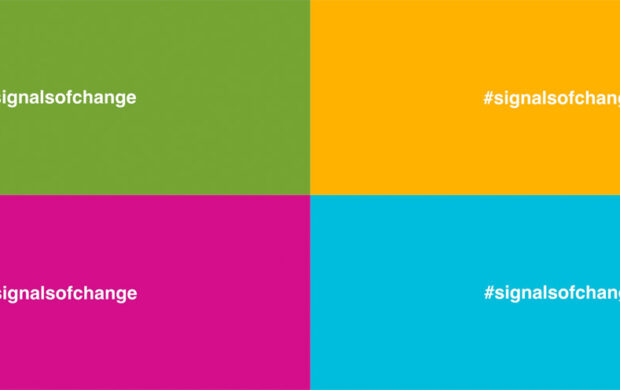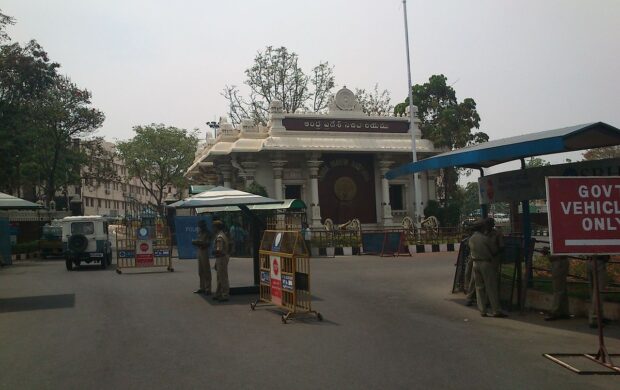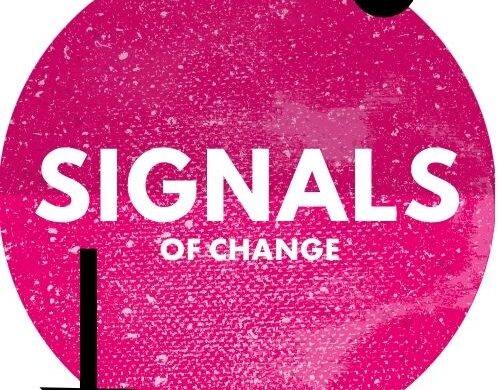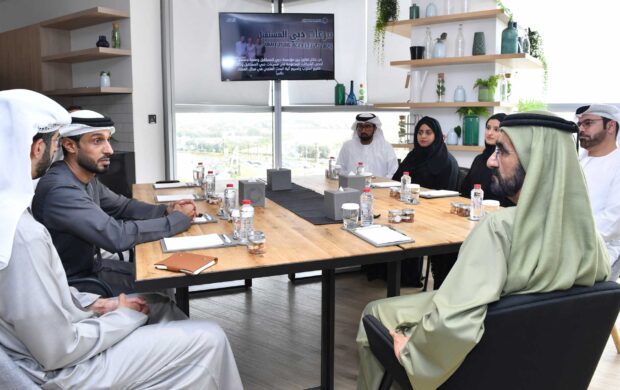Forum for the Future has announced its new 2023-2025 strategy, For a just and regenerative future, in a move that puts our futures practice front and centre of how we enable change.
Here, Forum’s Futures Lead, Alisha Bhagat, explains why and how exploring the future is critical to creating a world in which both people and the planet thrive. A world in which we have deeply transformed how we think about, produce, consume and value both food and energy, and the role of business in society and the economy.
More than 50 years ago, futurists Alvin and Heidi Toffler wrote about a phenomenon called Future Shock, a type of paralysis felt by humans as they observed rapid technological change. The world has changed a great deal since the 1970s, but the concept of future shock is still with us as the pace of change seems to increase and expand. We no longer worry about rapidly changing technology, but dramatic changes to our environment, the food and energy systems that enable our lives, and the changing role of humans on this planet.
Futures thinking can help break us out of the frantic, frenetic pace of reacting to the present by helping us systemically address issues threatening our future and that of our descendants. It can help move us from outdated narratives around consuming more, individualism, and polarisation, towards a future that is preferred. Futures thinking can help us define our shifting role on this ever-changing planet, towards what Tyson Yunkaporta refers to as a “custodial species”.
What would it mean for humans to truly care for nature spiritually, cognitively, and through action?
We are faced with the dual challenge of both determining our preferred future, while also navigating the change currently happening in the world around us. By constantly thinking and developing our ideas of the future, we can help ensure that the change occurring doesn’t cause paralysis, but is anticipated and navigable.
So much of the world today is unjust and extractive. Normalising and sharing visions of a just and regenerative future in which both people and the planet thrive is a means of combating future shock and being, as Buckminister Fuller said, “architects of the future”.
But what does this actually mean in terms of futuring? How can thinking about the future help influence the transitions we’re seeing in food, energy and the role of business – so that they are deep and transformational, not shallow and short-term?
Elements of our futures practice that support our strategy
Forum’s new strategy focuses primarily on three deep and urgent transitions: of our food system towards one that is equitable and regenerative, of our energy system towards one that is renewable, and of the role of business in influencing our society and economy as a force for good.
Our futures practice supports these three transition areas by helping us to anticipate change, shift narratives, and co-create preferred futures.
- One way we do this is by understanding the lessons of the past. In each of the transitions, there are examples from the past that point to a more just and regenerative system. Indigenous people in the Americas intercropped the three sisters, corn, squash, and beans, in a manner that was healthy for the soil and nutritious for humans. Ancient Egyptians and Romans used solar energy to heat their houses and baths. The past holds many examples of sustainable business practices, one being the contribution to the beer industry made by European monks, who, during the middle ages, started brewing and selling beer in order to sustain their own projects and be able to donate to the poor.
By re-examining historical models and cultural practices, we can better understand forces that shaped our present world, and understand that a just and regenerative future is not as far removed from us as we might think. - Secondly, futures can help us understand change while it is happening. We live in an ever-changing world in which new crises and innovations hit the headlines every day. Across our work we constantly look for what we think will be the building blocks of the future, those signals of change that are embedded in the present. New innovations, technologies, pilot programs, and business practices, as well as the revival or sustaining of established practices that point toward a more desired future.
Amidst the COVID-19 pandemic in 2020, Forum’s Future of Sustainability report launched a new Trajectories tool that considered how responses and impacts while disruptions continued to occur could play through to 2030. Fast forward to two years later, the tool continues to help us categorise change based on post-pandemic mindsets, and gauge what will take us to the trajectory where global systems are restructured for the future we need. Forum’s latest tool, the Business Transformation Compass (which explores just what it takes to adopt a just and regenerative mindset) also has provided invaluable frameworks for Forum’s partners as they work through where and how they can transform their operations while also influencing the wider markets in which they operate.
One of the most apparent issues to emerge from the ongoing pandemic was the way that trends intersected and impacted each other. The trend towards remote work for some professions was amplified, creating a shift in how we live, and impacting many world cities. Structural problems were also exposed with the amplified effect on poor and vulnerable populations and several difficult conversations restarted around structural racism, the impact of colonization, casteism, and other forms of discrimination that has persisted. Our futures work also critically helps organizations see the nature of intersectionality between climate and other global systems and structures.
In each of these transition areas, the future will also be shaped by the regional context they are playing out in and requires us to utilise a justice, diversity, equity, and inclusion lens. An approach that considers and respects lived experiences of people, and local cultural drivers that shape transitions. We can see the impact of centuries of power imbalances and unequal systems from exploitative labour practices in fields and factories, to environmental degradation caused by fossil fuel companies. A JEDI lens helps our futures work within energy, food, and business to understand those long-standing structural barriers and mindsets, as well as create visions that better represent us and our values.
- Thirdly and perhaps ultimately, our futures practice helps us imagine a better world. We live in a world in which short-term thinking and seemingly easy solutions abound. We often work with organisations where there is a desire to hit a financial target, or find a quick fix. Futures thinking can help us lift the conversation up a level to think about what really drives us. We use it to think of possible scenarios, and scenarios in which organisations can be better and thrive.
A set of well-researched immersive scenarios can help us tell stories that can help us shift mindsets and create ambitious goals.
An ever-evolving process
A futures practice is ever-evolving, and part of its success depends on a great diversity in futures thought. We may all agree on the vision of a just and regenerative future. But we might have different ideas on how to get there. We may also come to this work with different forms of knowledge. Embedded knowledge, cultural experiences, and indigenous ways of thinking are all ways we can shift our way of thinking about the future. We may dream of the future in different ways. You may see yourself 30 years from now living on a Mars colony or in a sleepy seaside village. Either way, the future will come for us all.
To help work towards a future we all want, Forum is doubling down on driving deep transformation in food, energy and the role of business. What might the world look like if we had a thriving food system, a regenerative energy system, and businesses that have reimagined their purpose, role and operations to put people and planet at the heart?
Creating this just and regenerative future cannot be done by any one organisation alone. We will need all sorts of people, engineers, artists, storytellers, scientists, healers, farmers, builders, and more to step up not just to imagine inspiring futures, but realise them.
Up next
Forum’s Futures Lead, Alisha Bhagat, asks ‘what if we really are successful in deeply transforming the way we live and work?‘ Joined by Forum colleagues, Alisha projects us into 2050 to consider what a just and regenerative future looks like and share stories of how this could play out across five areas: nature, agriculture, health, lifestyles and work.










Join discussion